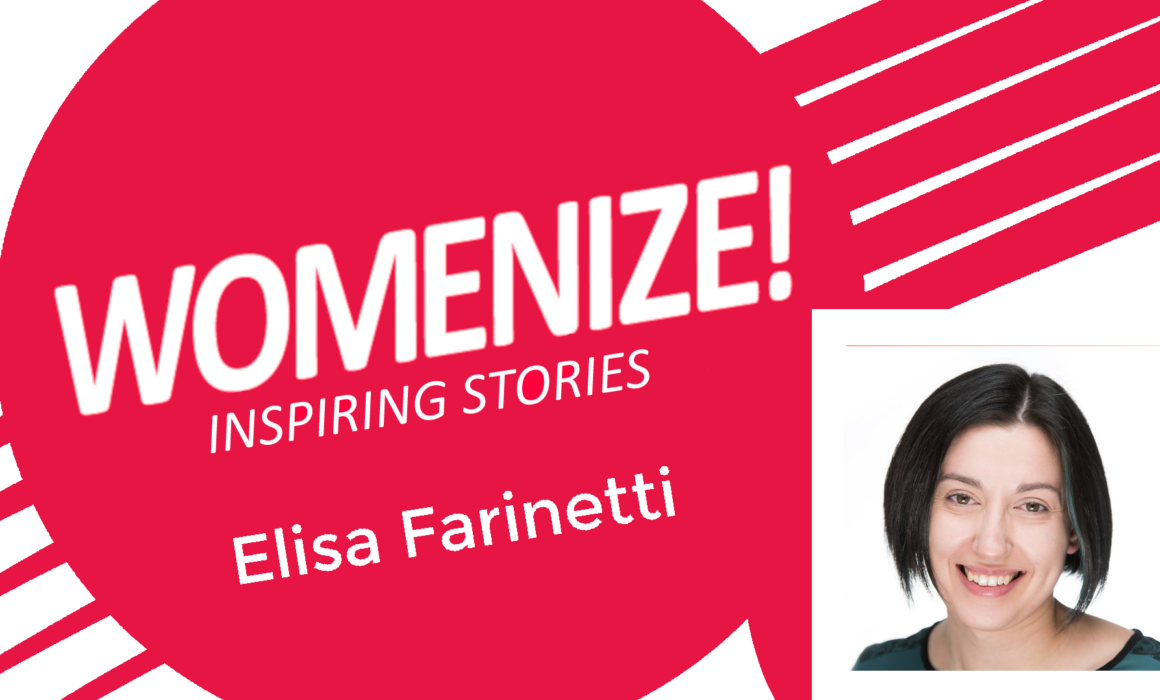Elisa Farinetti – Womenize! – Inspiring Stories
Womenize! – Inspiring Stories is our weekly series featuring inspirational individuals from games and tech. For this edition we talked to Elisa Farinetti, Business Developer & Co-Founder at Broken Arms Games. She speaks about her daily work routine, early challenges of establishing Broken Arms Games, and how the studio finds inspiration for unique game concepts by leveraging personal experiences, market trends, and community insights. Read more about Elisa here:
Hi Elisa! Your journey spans from studying computer science to co-founding Broken Arms Games and thriving in business development. Could you walk us through a typical day in your work life now, and how your technical background influences your approach to leadership and decision-making?
A typical day in my work life spans from email to calls, like almost everybody on earth 🙂 As we operate most remotely, even though we have an office, my day work starts on the office Discord server sharing the most embarrassing memes and “good morning messages” possible to set the tone for the day with the team, then I move on with emails while having my coffee, a lot of our business relations are overseas so I try to answer those email before any partner gets back in their working schedules. Afternoon is usually for operational tasks like: booking flights for conferences/events, scheduling discounts on our games, working on store pages and last but not least a couple of day a week I have administrative work and accounting to do. I think that having a technical background helps me a lot: when there is any production issue (my business partner Yves Hohler is the head of production) that may affect business I understand the implications and I understand/suggest solutions that may help our business and the team to overcome those issues, while I’m talking with the industry and I work around new possible strategies to sell our games on new platforms or stores I usually take in consideration that no new business come with no technical challenges and this kind of consideration are critical while we take decisions in the studios.
As a co-founder of Broken Arms Games, what were some of the most pivotal challenges you faced in the early stages, and how did overcoming them shape your vision for the company and its games?
Early stages of Broken Arms Games have been really tough, definitely cashflow was a huge challenge and we somehow survived thanks to BtoB work and other kinds of development for tech companies; when we reached a little bit of stability the hardest challenge was the identity of the studio: what genre? what scope? which games? and we failed miserably in trying different strategies and roads that didn’t work, we were following the idea of creating a game that we liked but not understanding completely why we liked them and how to replicate the formula, a pivotal moment was when we started to look at the studio and the different people in it, their skillset, their excellences and their weaknesses, there we realized that our strongest skills were in the management/simulation genre, that we had good intuition there and that genre was actually incredibly profitable with reasonably little investment.
Your projects like Hundred Days – Winemaking Simulator bring unique concepts to life. What inspires you to explore unconventional ideas in gaming, and how do you turn those ideas into successful products?
Hundred Days idea comes actually from a little chit chat moment we had with an industry friend that knew about our origins in a winemaking areas (Piemonte, Italy) and she suggested to bring our roots into a game; we didn’t purposely look for a unique concept there, there was something unique in our story that I think a lot of people really appreciate. In general when we start to brainstorm ideas for new games we try to look at the market and Steam especially to get a sense of what players love; we often see correlations between different media, when some concepts gets popular in a TV series or a movie, sooner or later they will cross the bridge and get their way into videogames and vice versa. From our previous mistakes we learned that communication is key so if the idea is really intricate to explain or to visualize, probably it’s not good for us as we will not be able to communicate it; in every step of the production we always think on how we will showcase that specific feature/content/character to players, we try as much as possible to keep the message simple and coherent as we know that the more it’s simple for us to express, the more it will spread from one player to the other, and that is still in 2025 the best marketing tool we have. In the pre-production of our new soon to be announced game that is centered on golf (spoiler), we investigate Youtube videos and Reddit communities to understand how people interact, talk and discuss about that; we immersed ourselves for months in that kind of content to get as familiar as possible with it.
Thanks for this interview, Elisa!
Elisa’s links: LinkedIn
Womenize! – Inspiring Stories Feature by Madeleine Egger

